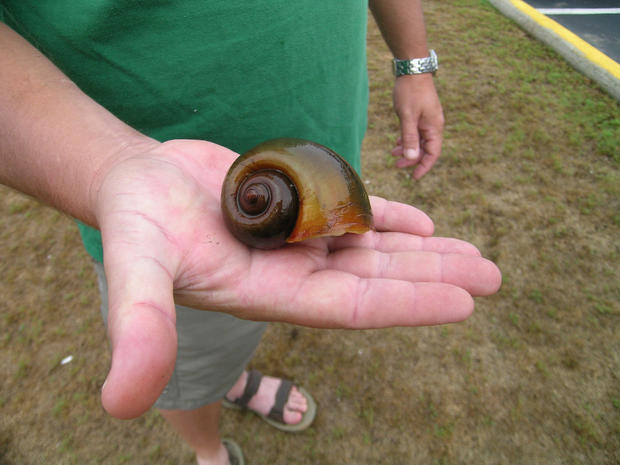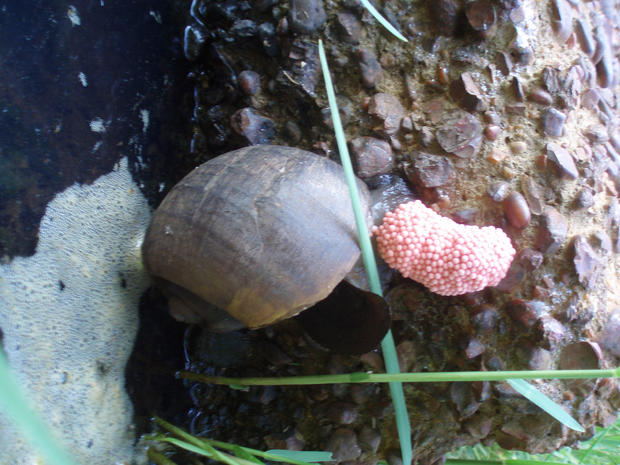Invasive snails that can be deadly to humans found in North Carolina
An invasive snail species that poses known threats to aquatic life and can cause deadly disease in humans was found recently along the Lumber River in North Carolina, officials said.
Apple snails, a destructive aquatic species native to South America, were discovered along the river in Lumberton, a southeastern city near the South Carolina border, the North Carolina Wildlife Resources Commission announced in a news release earlier this week. This is the first known population of Apple snails in North Carolina, the wildlife commission said, although they have been found in other U.S. states before. The invasive species has also been introduced to environments in parts of Asia and Europe.
Wildlife officials were initially tipped off to the presence of Apple nails in Lumberton when a citizen spotted and photographed a cluster of suspected Apple snail eggs and submitted them for the commission to investigate. A trademark of the Apple snail species is its eggs, which are laid in distinctively large, bright pink clusters on solid surfaces — like tree trunks, concrete or other vegetation — along the borders of streams, rivers or ponds, according to the commission.
Apple snail eggs are always laid above the waterline. When they hatch, the snails first drop into the body of water nearby to continue growing into full adults. They are aquatic animals themselves, able to exist both on land and in water. At full size, the snails measure between two and six inches in length.
A biologist with the North Carolina wildlife commission probed areas along the Lumber River after receiving the concerned citizen's photos. More eggs were collected and submitted to the North Carolina Museum of Natural Sciences, which ultimately confirmed that they did in fact belong to Apple snails. More adult snails were found later during biological surveys in other parts of the river.
Apple snails are dangerous for wildlife and human populations. Their grazing habits can damage plants that many native aquatic species rely on, and they have also been found grazing on some amphibian eggs, according to the wildlife commission. They also pose threats to humans because of their potential to carry parasites like rat lungworm, which can cause deadly illness in people if the snails are consumed raw or undercooked. Their eggs carry a toxin, too, which can cause skin and eye rashes.
The invasive species is capable of reproducing at an exceedingly rapid rate. Adult females lay eggs as frequently as once per week, and, often, hundreds or thousands of individual eggs are found at a time in a single cluster, according to the U.S. Geological Survey. The agency has warned of the potential for Apple snails to negatively impact a variety of wetland and aquatic ecosystems, as well as agricultural crops and human health. Likely introduced to the southeastern U.S. through the aquarium trade, certain species of Apple snail have established populations in Florida, Georgia, Texas and Louisiana, according to the agency.
Buying, selling, transporting or stocking Apple snails is illegal in North Carolina.





